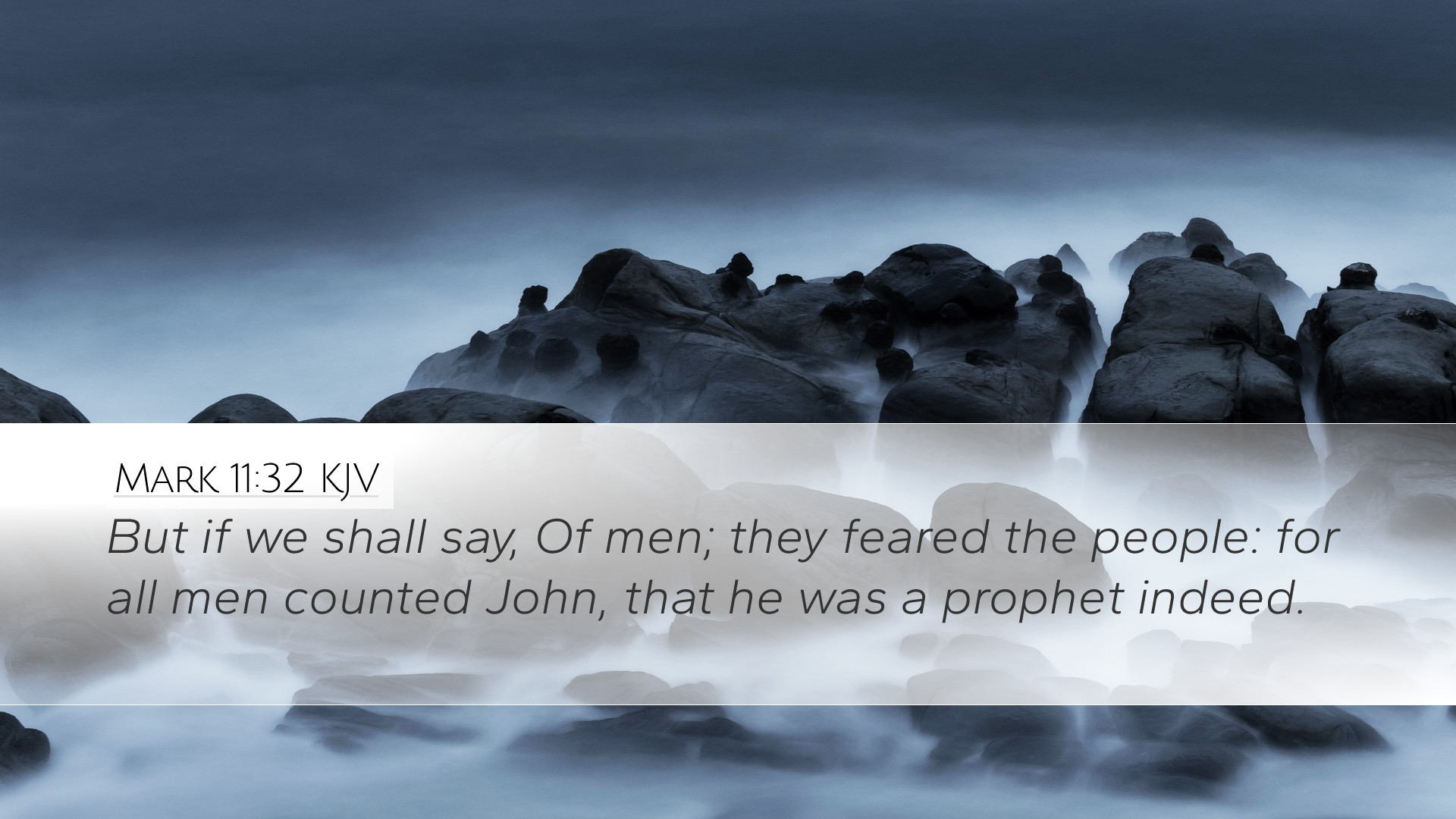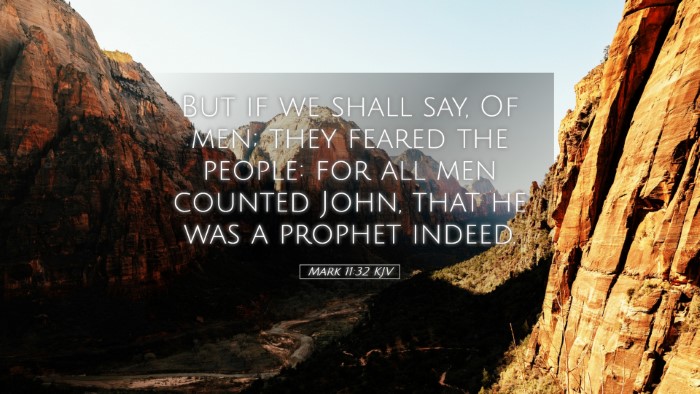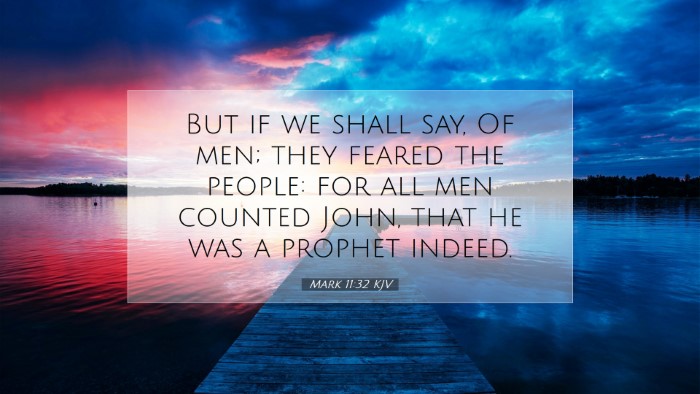Commentary on Mark 11:32
Mark 11:32 states:
But if we say, 'From man,' we fear the people, for all hold that John was really a prophet.
Contextual Overview
This verse takes place during the final week of Jesus' earthly ministry, amidst escalating tensions between Jesus and the Jewish authorities. The religious leaders seek to challenge Jesus' authority by questioning Him about the origins of His baptism. It is a moment rich with implications about human authority, the fear of public opinion, and the prophetic ministry of John the Baptist.
Insights from Public Domain Commentaries
Matthew Henry's Commentary
Matthew Henry emphasizes the dilemma faced by the religious leaders in this passage. He points out that they were caught in a web of their own making:
-
Fear of Man: Their apprehension about public perception reveals a deep-seated fear of man over fear of God. Henry suggests that this is common among those in positions of authority, noting that they prioritized their own safety and reputation over truth.
-
Hypocrisy: The leaders' lack of integrity is evident. Henry argues that they were not genuinely seeking truth but rather looking to entrap Jesus. Their unwillingness to acknowledge the prophetic role of John points to a broader rejection of divine authority.
-
Recognition of John’s Prophetic Role: The acknowledgment that John was a prophet is significant, as it highlights the divide between popular opinion and the leaders' acknowledgment of God's messengers. Henry notes that this gap indicates a moral failing on the part of the leaders.
Albert Barnes' Notes on the Bible
Albert Barnes provides further elaboration on the significance of public opinion and the religious leaders' strategic thinking:
-
Public Opinion as a Factor: Barnes points out that the fear of the people played a pivotal role in the leaders' decision-making process. They were well aware that rejecting John's authority would alienate them from the masses who revered him.
-
Authority Questioned: The leaders' question about Jesus' authority reflects a crisis at the heart of Jewish leadership. Barnes articulates that they were challenged to recognize the transition of authority from the old covenant prophetic figures to Jesus as the Messiah.
-
Accountability: The leaders' dilemma presents a timeless lesson on accountability—both to God and to the people. Barnes warns that leaders must align their actions with divine truth, lest they face consequences both in this life and the next.
Adam Clarke's Commentary
Adam Clarke offers a scholarly perspective on the interplay of authority in this verse:
-
Critical Examination of John’s Role: Clarke stresses the importance of John the Baptist's ministry as a bridge to Jesus. He reminds readers that John's acknowledgment by the people as a prophet was integral to understanding Jesus' authority.
-
Implications of Fear: The fear expressed by the leaders serves as a metaphor for the moral and spiritual condition of the Israelite leaders. Clarke argues that their fear stemmed from a realization that they were not acting in accordance with God's will.
-
The Dangers of Political Manipulation: Clarke warns against the manipulation of God's truth for political gain. He observes that such actions can lead to spiritual ruin, both for the leaders and the people they are meant to guide.
Theological Reflections
This passage invites several theological reflections beneficial for pastors, students, and scholars:
-
The Nature of Authority: The authority of Jesus versus that of established leaders opens a discourse on the nature of spiritual authority within the church today. Who speaks for God, and how do we discern His voice amidst conflicting messages?
-
Fear and Faith: The tension between fear of man and faith in God’s truth is applicable to contemporary believers. This verse challenges us to consider the extent to which we allow public opinion to affect our witness.
-
Response to Prophetic Voices: The response to genuine prophetic voices, like that of John, raises questions about receptivity to God’s messengers today. How do we respond to those who call us back to truth amidst societal pressures?
Conclusion
Mark 11:32 presents a complex interplay of authority, public perception, and spiritual integrity. The insights derived from Matthew Henry, Albert Barnes, and Adam Clarke encourage readers to critically examine their own responses to God's truth and the voices that seek to convey it. In a world often driven by fear of man rather than fear of God, this passage stands as a call to courage and authenticity in our spiritual lives.


